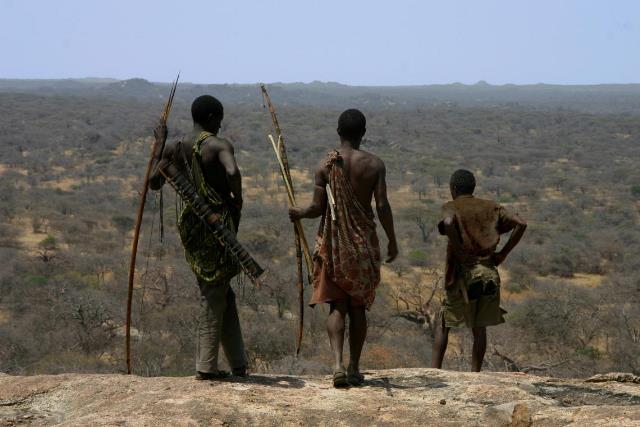From majestic elephants and fierce lions to graceful giraffes and enormous rhinos, the African continent is home to some of the most breathtaking wildlife in the world. Unfortunately, their existence is under threat. As such, the need for African wildlife conservation is urgent.
It’s important to continuously find solutions and coordinated efforts to protect endangered animals.
In this article, we’ll look at the difficulties conservationists in Africa face and the tactics used to safeguard these magnificent animals and their habitats.
Explore the fascinating world of African wildlife with us and the significant initiatives to protect it for future generations.
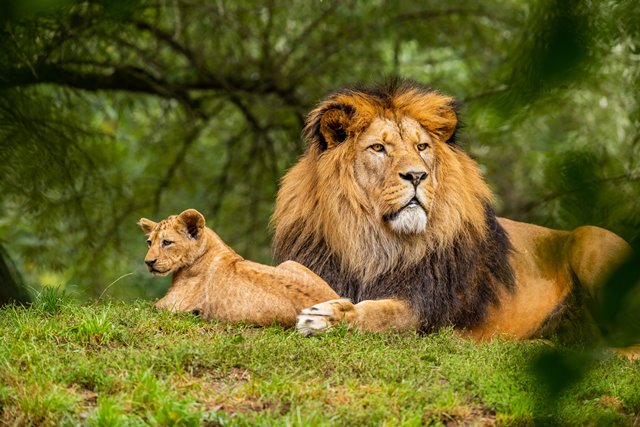
Challenges Facing African Wildlife Conservation
African wildlife conservation faces numerous problems. Here are some of them:
Habitat Loss and Fragmentation
Human activities have interfered with wildlife for time immemorial. But as the years go by, human activities are impacting animals more.
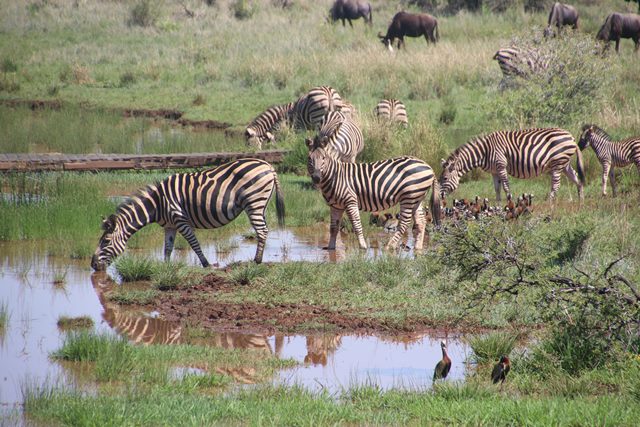
Mining, agriculture, and urbanization of rural areas are only a few of the many challenges facing African wildlife conservation. This has caused habitat loss and fragmentation, which lowers biodiversity. This poses a severe risk to African wildlife because of the strain the continent’s rapidly expanding human population puts on its natural resources.
Wildlife populations are compelled to live in smaller, more remote areas. This reduces their genetic diversity and makes them more susceptible to disease and extinction. As a result, their habitats are destroyed.
Poaching and Illegal Wildlife Trade

African wildlife conservation also faces difficulties like poaching and illegal wildlife trade. Poaching is the illegal killing of wildlife for its components, such as rhino horn or elephant ivory.
Wildlife products like live animals, skins, and body parts are bought and sold in illegal trades across the continent. These goods are in high demand because people think they have therapeutic or cultural value.
However, this illegitimate multi-billion-dollar industry seriously endangers the survival of African wildlife populations.
Human-Wildlife Conflict
When humans and wildlife interact, there is a risk of conflict, which harms both groups. These conflicts can occur when animals threaten human safety or harm crops or livestock.
This can lead to population decline as humans kill more animals. Sadly, the conflict between humans and wildlife poses a big problem for conservation efforts because it can change people’s opinions about wildlife and lessen support for preservation.
Climate Change
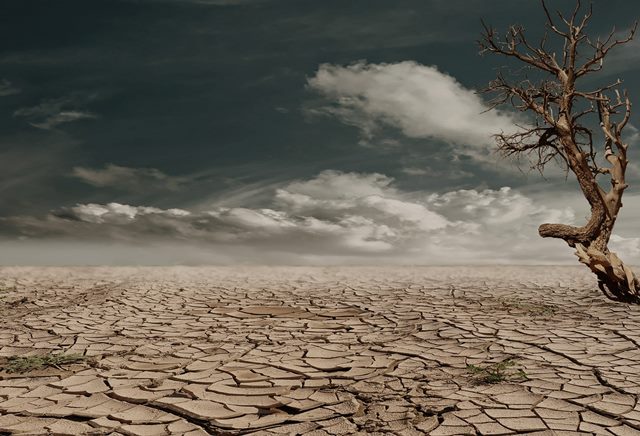
African wildlife conservation faces significant challenges due to climate change. Climate change can affect wildlife habitats and disrupt breeding cycles.
It can also spread disease by altering rainfall patterns, increasing the frequency of extreme weather events, and raising temperatures.
In addition, resources like food and water are also affected by climate change, which can impact animal behavior and migration patterns.
Put Your Tech Company on the Map!
Get featured on Nicholas Idoko’s Blog for just $50. Showcase your business, boost credibility, and reach a growing audience eager for tech solutions.
Publish NowStrategies for Protecting African Wildlife
Let’s look at some of the strategies currently being used to protect African wildlife and possible methods that can be introduced.
Protected Areas and Wildlife Reserves
Reserves for wildlife and protected areas have been set aside and managed to preserve wildlife and their habitats. These areas offer a refuge for wildlife and permit the control of human activities that might endanger it.
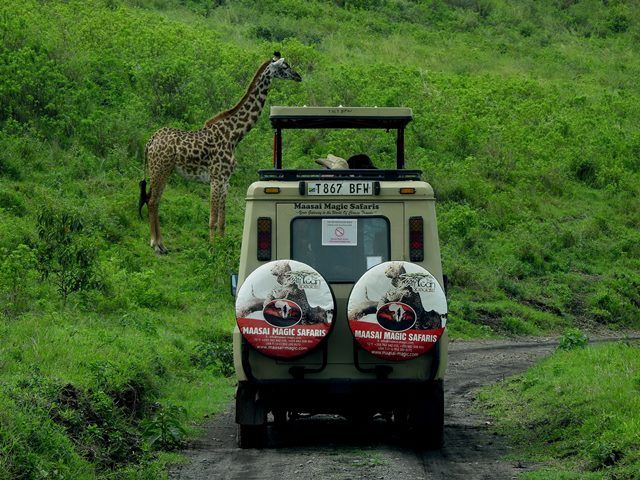
National game reserves are prime examples of protected areas frequently used in African wildlife conservation efforts. Additionally, protected areas provide opportunities for study, research, and eco-tourism. This can benefit local economies and help conservation efforts.
Community-Based Wildlife Conservation
Community-based conservation involves working with local groups to protect wildlife and their habitats. This strategy promotes local participation in management and decision-making while acknowledging the importance of communities in conservation.
Communities can be involved in anti-poaching efforts, education, and awareness-raising campaigns. The creation of conservation-friendly sustainable livelihoods is an example of community-based conservation strategies.
Anti-Poaching and Law Enforcement Efforts
Protecting African wildlife from illegal hunting and trade depends heavily on anti-poaching and law enforcement efforts. These initiatives employ rangers, surveillance systems, and other strategies to stop poaching and catch offenders.
It’s important for more legislation to be passed that frowns on poaching, especially laws with hefty punishments.
Education and Awareness-Raising Campaigns
Promoting the conservation of African wildlife depends heavily on education and awareness-raising campaigns. These campaigns aim to reach various audiences, including locals, tourists, and decision-makers.
Additionally, these campaigns aim to increase awareness of and respect for the value of wildlife, their habitats, and the threats they face. They can also spread awareness of how eco-tourism and other conservation advantages can be profitable.
Sustainable Tourism
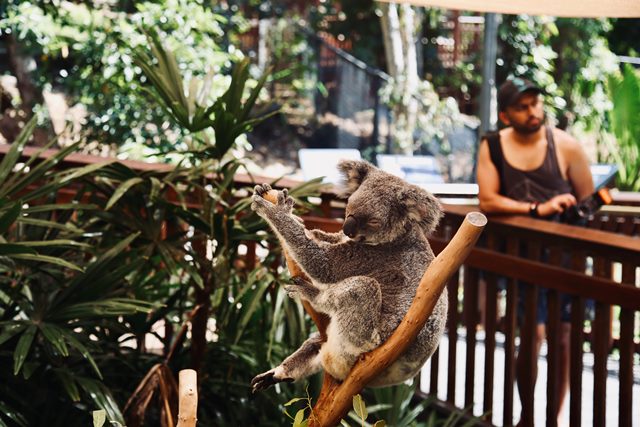
Sustainable tourism encourages wildlife conservation by benefiting local economies and causing the least environmental harm possible. This includes responsible visitor behavior, assisting neighborhood businesses, and reducing environmental impacts.
Sustainable tourism can also generate money for the neighborhood and encourage conservation efforts.
Case Studies of African Wildlife Conservation Efforts
Put Your Tech Company on the Map!
Get featured on Nicholas Idoko’s Blog for just $50. Showcase your business, boost credibility, and reach a growing audience eager for tech solutions.
Publish NowCase studies can help understand the complex problems African wildlife faces and the real-world conservation strategies that have been used to create workable solutions. e.
Following are some case studies in African wildlife conservation:
Gorilla Conservation in Rwanda
The gorilla conservation in Rwanda is an example of a successful African wildlife conservation strategy. Before the program, only about 250 mountain gorillas were left in Rwanda in the 1970s, a severely depleted number.
As a result, the government created the Volcanoes National Park to safeguard their habitat and put anti-poaching measures in place.
Additionally, they created community-based conservation strategies, such as revenue-sharing plans and tourism-related projects that incentivized locals to help with conservation efforts.
Fortunately, Rwanda now has a population of over 600 mountain gorillas, and local communities have benefited financially from tourism.
Lion Conservation in Kenya
Another case study for African wildlife conservation is the lion in Kenya. Due to habitat loss, conflicts between people and wildlife, and illegal hunting, lion populations in Kenya have drastically decreased in recent years.
As a result, the government has implemented measures to address these threats. This includes land use planning, compensation plans for livestock losses, and community-based conservation programs.
For instance, a community-led initiative called the Maasai Mara Wildlife Conservancies Association has successfully decreased human-wildlife conflict. It also brought economic benefits to the surrounding areas. In some parts of Kenya, these initiatives have helped to stabilize lion populations.
Rhino Conservation in South Africa
With an estimated 7,000 rhinos killed between 2008 and 2021, poaching has wiped out rhino populations in South Africa. However, the government has responded by putting anti-poaching measures in place. This includes more vigorous law enforcement and the deployment of rangers.
Private game reserves have also started breeding programs and implemented anti-poaching measures to increase rhino populations.
Although some of these efforts have been successful, the ongoing demand for rhino horn presents a severe obstacle to conservation efforts.
Elephant Conservation in Botswana
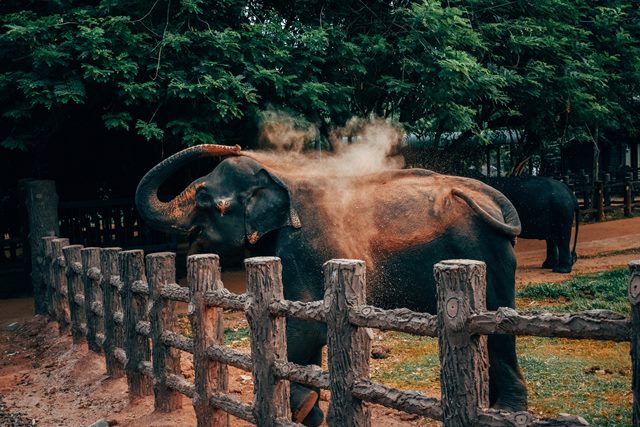
With an estimated 130,000 elephants, Botswana has the largest elephant population in Africa. Sadly, poaching, habitat loss, and growing human-elephant conflict have all endangered their populations.
Thankfully, the Botswana government has responded by enacting measures like a ban on trophy hunting, increased law enforcement, and neighborhood-based conservation programs.
The group, Elephants Without Borders has also implemented a program that uses GPS tracking collars to keep track of elephant movement and lessen conflict with people. These initiatives have helped keep the elephant populations in Botswana stable.
Chimpanzee Conservation in Uganda
As a result of habitat loss, poaching, and disease, chimpanzee populations have decreased in Uganda. And the Jane Goodall Institute has carried out community-based conservation initiatives, including campaigns to raise awareness and educate the public, in response to these threats.
For instance, the Roots & Shoots program promotes young people’s involvement in conservation initiatives and fosters an understanding of the importance of wildlife and their habitats.
These initiatives have boosted local support for chimpanzee conservation and benefited the local economy.
Put Your Tech Company on the Map!
Get featured on Nicholas Idoko’s Blog for just $50. Showcase your business, boost credibility, and reach a growing audience eager for tech solutions.
Publish NowThe Importance of Continued Conservation Efforts
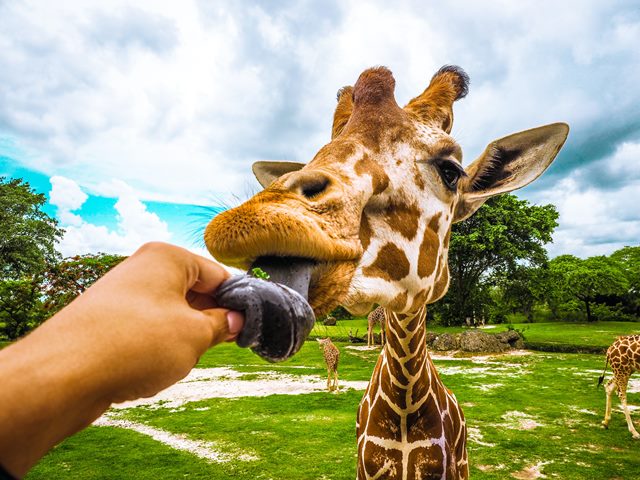
One of the main reasons African wildlife conservation programs must continue is to maintain the natural balance.
Ecosystems are intricate networks of organisms that depend on one another for survival, including plants, animals, and microorganisms. The loss of one species can affect the ecosystem as a whole, creating imbalances that may have serious repercussions.
For instance, the decline of pollinators like bees and butterflies may have an impact on plant reproduction. This can, in turn, affect food production and human health.
The cultural and economic value of natural resources must be preserved, and this requires conservation efforts. Indigenous peoples worldwide rely on the land and its wildlife for survival. And many of these communities have a strong cultural connection to the environment.
Additionally, millions of people travel for leisure and to view wildlife in its natural habitats, which has a significant positive economic impact. Conservation efforts aid in preserving these resources for present and future generations to use and enjoy.
Continuous conservation efforts are essential to lessen the effects of climate change. Firstly, natural habitats are necessary for storing carbon and controlling the planet’s climate.
Secondly, deforestation and other habitat destruction release carbon into the atmosphere, causing global warming. Hence, by storing carbon and delivering additional advantages like lowering soil erosion and safeguarding water resources, conservation efforts like reforestation and preserving natural habitats can help lessen the effects of climate change.
Before you go…
Hey, thank you for reading this blog to the end. I hope it was helpful. Let me tell you a little bit about Nicholas Idoko Technologies. We help businesses and companies build an online presence by developing web, mobile, desktop, and blockchain applications.
We also help aspiring software developers and programmers learn the skills they need to have a successful career. Take your first step to become a programming boss by joining our Learn To Code academy today!
[E-Books for Sale]
1,500 AI Applications for Next-Level Growth: Unleash the Potential for Wealth and Innovation
$5.38 • 1,500 AI Applications • 228 pages
Are you ready to tap into the power of Artificial Intelligence without the tech jargon and endless guesswork? This definitive e-book unlocks 1,500 real-world AI strategies that can help you.
See All 1,500 AI Applications of this E-Book
750 Lucrative Business Ideas: Your Ultimate Guide to Thriving in the U.S. Market
$49 • 750 Business Ideas • 109 pages
Unlock 750 profitable business ideas to transform your future. Discover the ultimate guide for aspiring entrepreneurs today!
See All 750 Business Ideas of this E-Book
500 Cutting-Edge Tech Startup Ideas for 2024 & 2025: Innovate, Create, Dominate
$19.99 • 500 Tech Startup Ideas • 62 pages
You will get inspired with 500 innovative tech startup ideas for 2024 and 2025, complete with concise descriptions to help you kickstart your entrepreneurial journey in AI, Blockchain, IoT, Fintech, and AR/VR.
We Design & Develop Websites, Android & iOS Apps
Looking to transform your digital presence? We specialize in creating stunning websites and powerful mobile apps for Android and iOS. Let us bring your vision to life with innovative, tailored solutions!
Get Started Today

